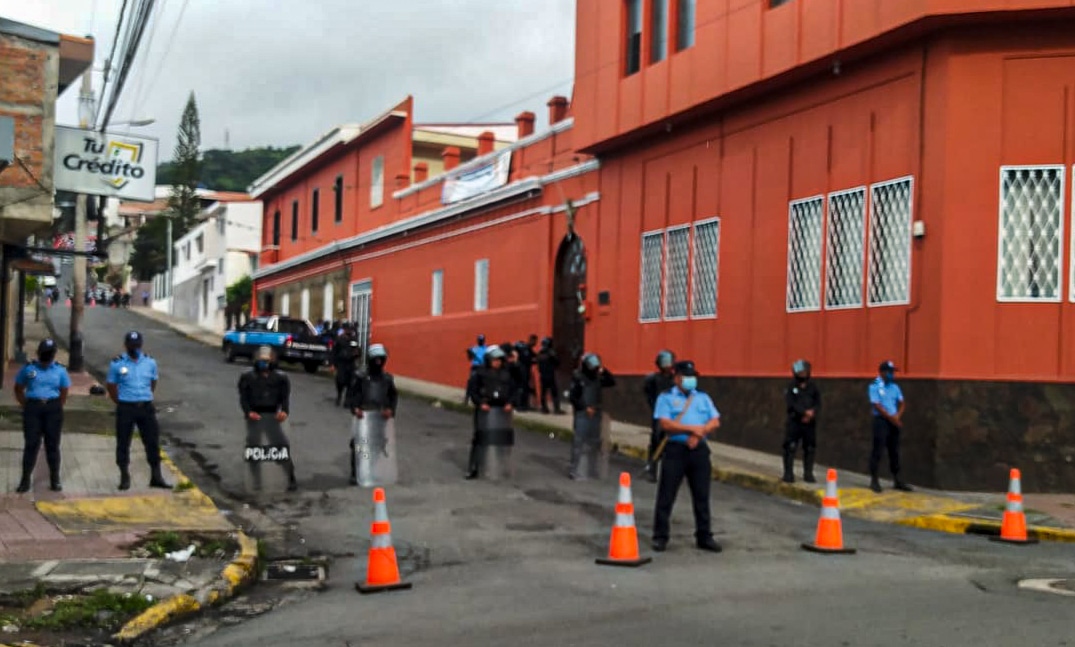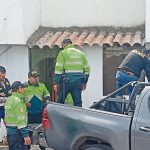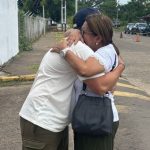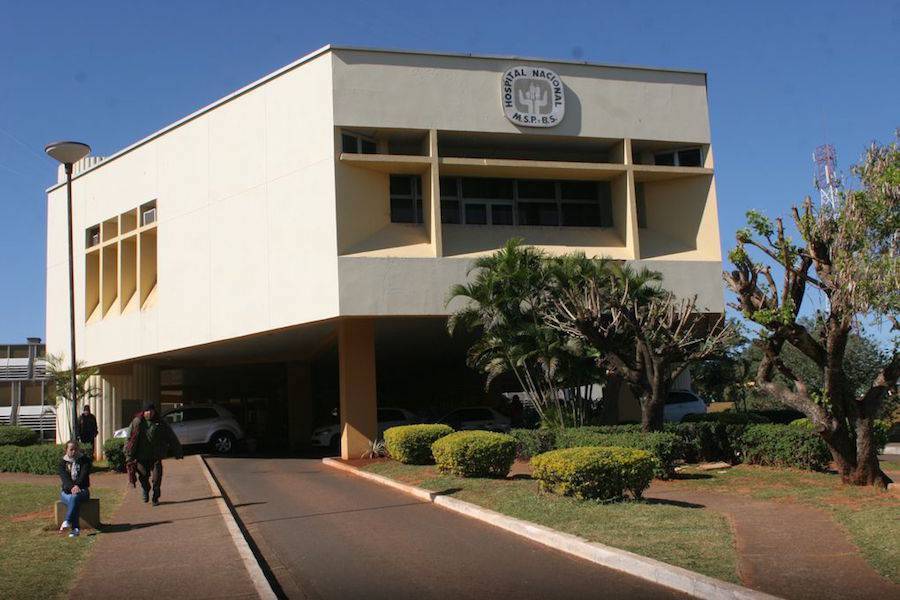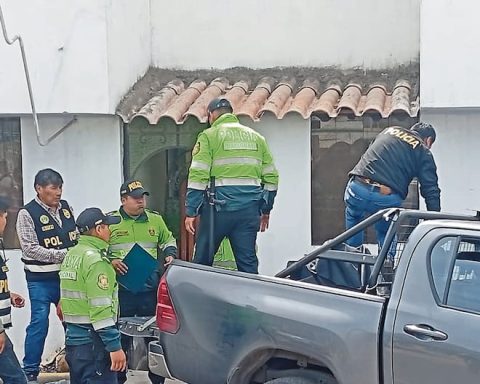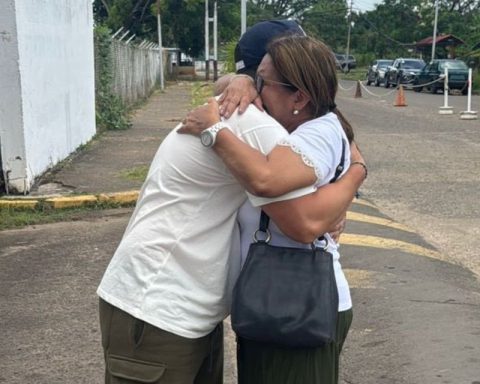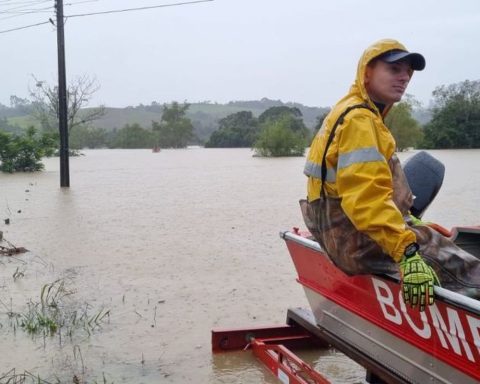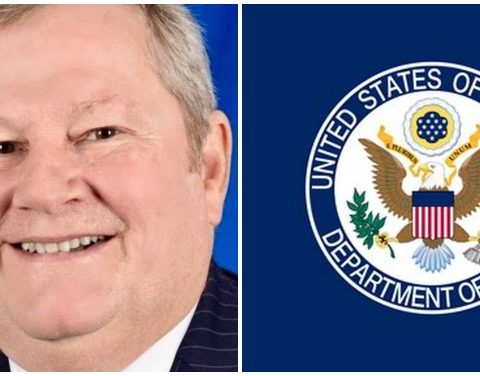The latest attack by the Daniel Ortega dictatorship against the bishops and priests of the Catholic Church in Nicaragua was accompanied by a intense campaign of disinformation, defamation and hate to try to manipulate public opinionreveals a data analysis and monitoring of the discourse of CONFIDENTIALwhich monitored the publications of the Ortega propaganda apparatus on websites, television channels and social networks during these months of 2022.
In recent weeks, Ortega’s attacks against the Church in Nicaragua have escalated without precedent, leaving a dozen imprisoned priestsother dozen exilesreligious missionaries expelled from the country and others who cannot leave or enter by orders of the regime.
During these weeks, the Ortega propaganda media apparatus has sustained a strategy of disseminating national and international news against the Church in general, which even involves hoaxes about religious with allegations of sexual abuse, arms trafficking and money laundering.
In addition, the campaign includes hate speech against the Catholic Church on social networks, with the dissemination of messages in support of the regime’s actions by party accounts, Ortega deputies and “journalists” or “left” spokesmen. Likewise, the accounts related to the regime, which They operate as digital farms, as revealed in 2021 by the Meta company – which operates Facebook, Whatsapp and Instagram.acted through tweets and posts on Facebook to try to “disprove” the news of the repression against Catholic bishops and priests in Nicaragua.
For this analysis, CONFIDENTIAL built a database with the news, interviews and opinion articles systematically published in the official media: El 19 Digital, Channel 8, Channel 6 and Channel 4 between January and September 2022. It also analyzed the conversation on social networks, their behavior and reach with the digital tools Trends Maps, SocioViz and Hoaxy.
Accusations and hoaxes in campaign against the Catholic Church
regimen Ortega executes a sustained hate speech against the Catholic Church since July 2018, when he accused the bishops of the Episcopal Conference – who were mediators in the first attempt at National Dialogue – of supporting alleged “coup groups” that sought to end his government. This is part of the official narrative that seeks to erase from memory the civic uprising of that year, when more than three hundred Nicaraguans were killed by police and paramilitary repression.
Since then, verbal accusations against the religious have increased in the official discourse and in the official media the systematic dissemination of news, mainly international, has begun that affects the image of the Church. All despite the fact that the Government of Daniel Ortega promotes itself as “Christian, socialist and supportive” and that -daily- his wife, vice president and spokesperson for him, Rosario Murillo, mentions God in his interventions.
In December 2021 –one of the moments in which Daniel Ortega’s campaign against the Catholic Church in Nicaragua increased– the official media network published an article titled “‘We are not going to mass’: how the Nicaraguan people are punishing their coup priests”, in which alleged parishioners repudiated Catholic priests for their alleged participation in the 2018 protests.
In 2022, between January 1 and September 6, the four official media analyzed published on their websites: 62 news items, two interviews and 20 articles against the Catholic Church. 50% of this information was shared in August, the next moment in which the repression against bishops and priests intensified. By then there were already a dozen priests arrested, including Bishop Rolando Álvarez, who was first not allowed to leave the Episcopal Curia of Matagalpa and then – on August 19 – was transferred under a “house to jail” regime to the home of his parents, in Managua.
The analysis of these 84 publications, including interviews and articles, reveals a pattern in the dissemination of this type of content: all of them have a discrediting narrative against the Church and are published in all official propaganda media with slight modifications to the title. . In 42 of these articles, the content is about priests involved in alleged sexual crimes.
In addition, there are a couple of international news about religious involved in cases of money laundering and arms trafficking, however, they are hoaxes. One of the notes is titled “They arrest a priest accused of arms trafficking in Haiti”, but they do not explain that he is a priest of the Anglican Church and not of the Catholic Church. Even days after the publication of this hoax, Channel 4 published another follow-up note about the capture of the accountant of that church and they point out that it is the Catholic institution.
The 20 opinion articles were published in August, and were written by Ortega deputies Moisés Absalón Pastora and Wilfredo Navarro. In their writings, both attacked Monsignor Rolando Álvarez, bishop of the Diocese of Matagalpa and apostolic administrator of the Diocese of Estelí, who has been under “house arrest” since August 19. “My total condemnation of this man’s attitude because he is not a priest,” Navarro shouted. His article was published in El 19 Digital, Channel 4 and Channel 8.
Abasalón Pastora published his articles only in El 19 Digital and in these he attacked the priests of the Episcopal Conference, accused them of being accomplices in the alleged failed coup attempt, in addition to accusing several bishops, such as Monsignor Aberlado Mata, bishop emeritus of Estelí, and Monsignor Silvio Báez, exiled in the United States and Monsignor Rolando Álvarez of alleged death threats and sadism, and calling them mafiosi.
Other characters who try to influence public opinion through opinion articles published by Daniel Ortega’s media propaganda are Becca Renk, from the American NGO Jubilee House Community; the Italian journalist, Fabrizio Casari, who was paid $210,000 by the regime to lobby for him in Europe, as revealed Public FileY Magda Lanuza, who is cited as a sociologist. These authors were published in all official media.
In one of the articles, the official channel Channel 4 publishes a couple of context paragraphs full of hoaxes, including an alleged statement from Cardinal Leopoldo Brenes and the Episcopal Conference in which they indicate that “the acts carried out by Rolando Álvarez were in a personal capacity and nothing to do with the rest of the country’s bishops”. But that information is false.
Use of digital farms in Daniel Ortega’s campaign
On social media, the regime’s bot farms continue to try to dominate conversion. On Twitter, these accounts publish posts denying the persecution of the Catholic Church and priests. In the weeks that the country experienced a moment of tension due to the situation of the religious in Matagalpa, the accounts began to tweet videos of the celebration of the small shouting in León.
Another of the attempts to deny the harassment against Monsignor Rolando Álvarez was an English thread published on Twitter by the left-wing journalist, Benjamin Rubinstein, who pointed out that the situation in Matagalpa was false, since the parishioners participated in Sunday mass normally and pointed out to other accounts that share unverified content.
“The current disinformation campaign against Nicaragua I would make you believe that there are riots in the streets of Matagalpa, but here life goes on normally with little police presence,” Rubinstein wrote, without showing the images of the Episcopal Curia, where Bishop Álvarez was surrounded by police officers.
The thread had 298 retweets, 79 quoted retweets, and 563 likes. However, in the comments there were several responses from Nicaraguans who shared photographs of the siege suffered by the Church. As well as party accounts that left comments in support of the regime. In these, the narrative included “In Nicaragua we are enjoying Peace” and the use of the hashtag #PatriaBenditayLibre.
Using this hashtag, the accounts related to the regime began to leave hateful posts on Twitter in which they attacked the bishops, whom they pointed out as “fostering hatred”, “hoarding funding from NGOs”. These accounts are exclusive for the dissemination of political content in favor of the Ortega regime and also political allies such as Russia, Cuba and Venezuela. Some have few followers, but there are others that exceed a thousand “likes” or “shares”.
In November 2021, the Meta company and Twitter revealed that the Ortega regime had a bot farm that operated during office hours spreading propaganda content. Consequently, they eliminated more than a thousand accounts, pages and groups that were part of this network. However, there is evidence that they continue to operate.
The Mexican journalist Otoniel Martínez, who last July infiltrated Nicaragua for two weeks and published a series of contents about the repression in the country, was attacked by these bots in August. According to what he denounced on the Azteca Noticias YouTube channel, where he is a reporter, in the days after the reports were published on his Twitter accounts, he received several threats.
“I almost started reading dictated lines on Twitter,” said the journalist from Azteca Noticias. “One Sunday the wave said look at the dictatorship you are talking about and they began to send me tweets with photographs of the last concert that Los Tigres del Norte gave”; “The following Monday, with dictated lines, photographs of religious festivals.” “So – he added – I am beginning to see that this is how bots operate.”
Attack against Bishop of Granada
One of the latest attacks against the Catholic Church in Nicaragua occurred at the beginning of November with the conviction of Monsignor Leonardo Urbina, priest of the Perpetuo Socorro parish, of Boacowho was sentenced to 30 years in prison for the alleged crimes of sexual abuse and rape against a minor under 14 years of age.
Before the sentence, the bishop of Granada, Jorge Solorzano, made a statement of six lines in which he expressed “his deep pain and suffering upon learning of the sentence.” Three days later, the Family Ministry, controlled by the Ortega regime, published a statement condemning the priest’s statements and demanding that he “ask the victims for forgiveness.”
The bishop did not publicly react to the Family Ministry’s demand, but his statement was deleted from the official Facebook page of the Diocese of Granada. The regime’s digital farm took advantage of the statement to revive hate messages towards the Church.
Between August 31 and September 8, 2022, 81 posts were published on Twitter about the statement from the Ministry of Family, these publications were accompanied by the hashtag #PatriaBenditayLibre, #Nicaragua and #UnidosEnVictorias, #Granada. The analysis of the narrative coincides with the description of the journalist Otoniel Martínez: “dictated lines”. Even the bots use the same emojis and tag the same media outlets.
The #PatriaBenditayLibre is the label that the networks of the Ortega regime use lately to position the narrative of progress in their favor and in the midst of repression so that the message against the Church has a greater reach. These are also in charge of promoting recreational activities that show a normality in the country with concerts, sports matches, cultural activities carried out under the country that they call a facade.
